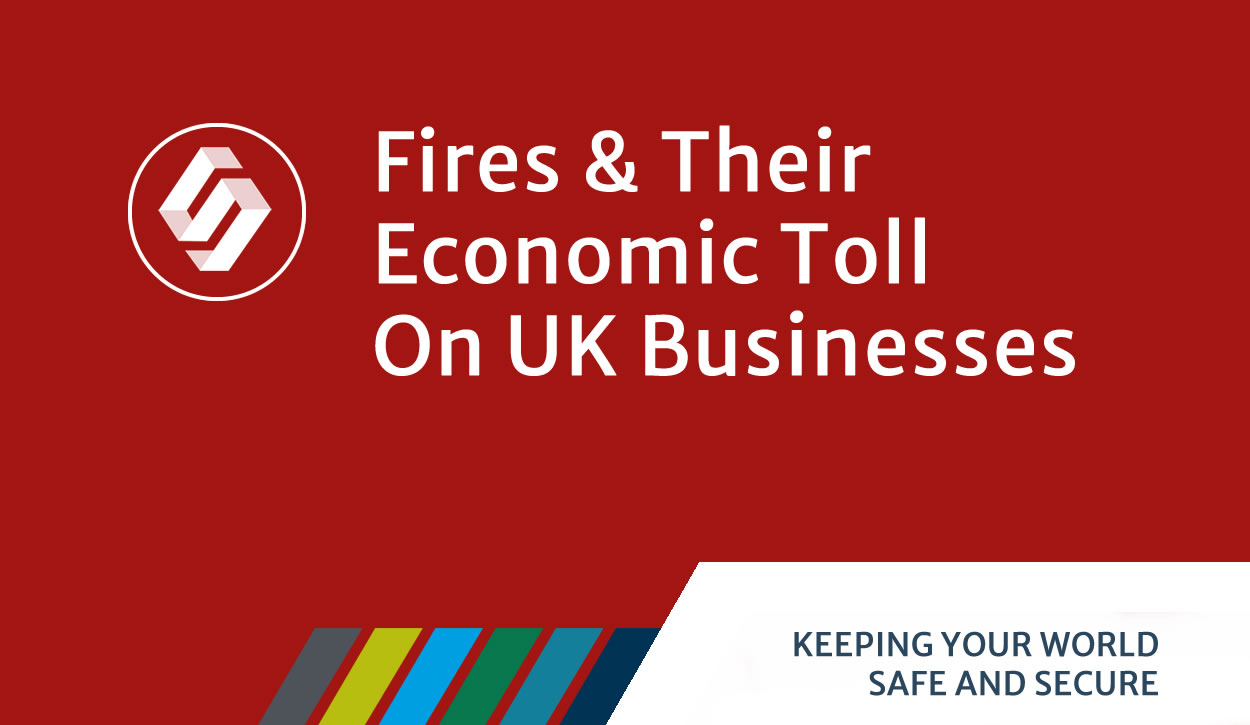Fires & Their Economic Toll On UK Businesses
Fires impose a staggering £12 billion annual cost on the UK economy, with devastating consequences for businesses. From direct financial losses in retail and manufacturing to hidden costs like supply chain disruptions and environmental damage, the ripple effects extend far beyond the immediate impact. This article explores the financial toll and underscores the critical importance of proactive fire safety measures to protect businesses.

A Persistent Threat to Businesses
While often overshadowed by other natural disasters, fire remains a significant and growing threat to UK businesses. Despite a decline in overall fire incidents, with 594,384 cases responded to by fire services last year, the financial impact on businesses is severe. Accidental and structural fires, rather than wildfires, continue to pose the greatest risk, highlighting the importance of mandatory fire signage and strict safety protocols.
Industries at Greatest Risk
Certain sectors face disproportionate vulnerabilities to fire, with the retail, restaurant, and manufacturing industries particularly at risk. Fires in these sectors often lead to substantial financial losses and supply chain disruptions, complicating the total economic assessment.
Key Statistics:
- Retail establishments account for 15% of major fires, frequently suffering significant inventory losses.
- Manufacturing businesses bear the greatest financial burden, with total losses exceeding £800 million annually.
- Electrical faults are a leading cause, responsible for over 4,000 business fires in three years.
- Insurance claims alone amount to £940 million annually, yet uninsured losses push the total financial impact beyond £1 billion.
Direct Financial Consequences
The immediate financial costs of fires are catastrophic, with major UK fire incidents averaging £657,074 per case. For small and medium-sized businesses, such losses can be existential. A breakdown of these losses includes:
- Building damage: 43%
- Business interruption (e.g., lost sales): 18%
- Contents damage: 7%
- Stock and machinery damage: 5% each
Wider Economic Impacts
Fires extend their economic footprint far beyond the affected businesses, contributing to hundreds of millions in GDP losses each year. These losses stem from reduced productivity and disrupted supply chains, which impact the broader economy:
- GDP Impact: Fires result in a £1 billion GDP loss over five years due to preventable warehouse fires alone.
- Job Losses: Over 5,000 jobs were lost during this period.
- Tax Revenues: Decreased productivity leads to reduced tax receipts, amounting to a £160 million shortfall, while firefighting costs rise.
- Although repair work and alternative business activity can offset some losses, the overall impact, including cost-push inflation, remains significant.
Hidden Costs and Long-Term Consequences
Beyond immediate financial and economic losses, fires cause substantial long-term damage.
Public Trust and Reputation
The Grenfell disaster revealed the lasting erosion of public trust, undermining investment and consumer confidence. For businesses, preventable fire incidents can irreparably harm brand reputation, with many unable to recover.
Environmental Damage
Fires contribute to air and water pollution, especially when hazardous materials are involved, damaging local ecosystems, biodiversity, and soil health. Property values in affected areas often decline, further impacting neighbouring businesses.
The Role of Fire Safety
Research underscores the importance of robust fire safety measures in minimising damage and reducing risks. Key actions include:
- Fire Signage: Clear and context-specific fire safety signs ensure safe evacuation and hazard identification. Larger spaces require appropriately scaled signage.
- Sprinkler Systems: Automated sprinklers effectively control fires in their early stages, limiting damage.
- Training and Preparedness: Fire safety training for staff ensures efficient responses and better preparedness.
- Early Detection: Smoke detectors and alarm systems are vital for rapid fire detection and response.
Proactive measures like these, along with comprehensive insurance, are among the most effective ways businesses can safeguard against fire risks.
Conclusion
Fires pose a severe and far-reaching threat to UK businesses, with annual financial costs in the billions and lasting environmental damage. The Grenfell Enquiry highlighted systemic failings but did not lead to the widespread public awareness necessary for meaningful change. As gaps in government regulation enforcement persist, the responsibility falls on businesses to take proactive steps in fire safety and risk mitigation. By investing in preventative measures, businesses can protect themselves from the growing financial and operational threats posed by fires.
#FireAlarms #FireRiskAssessment #FireSafetyEquipment #FireAlarmMaintenance #AccessControl #CCTV

